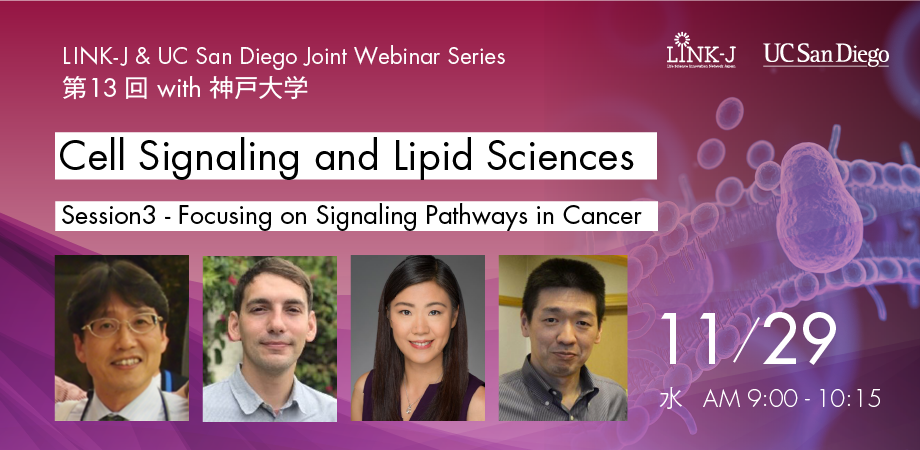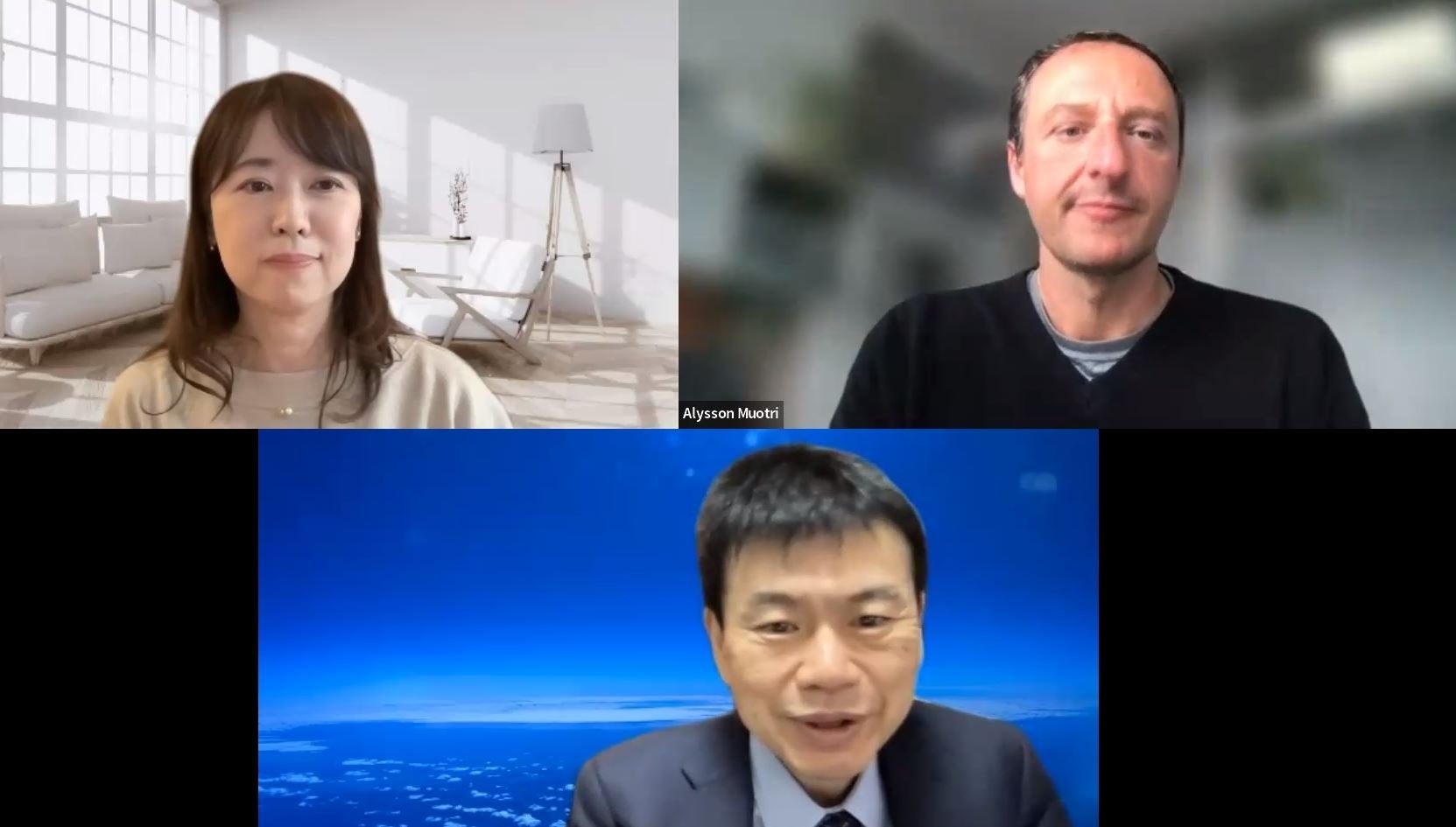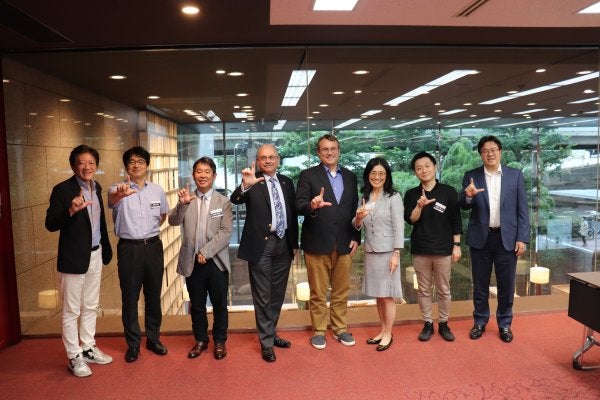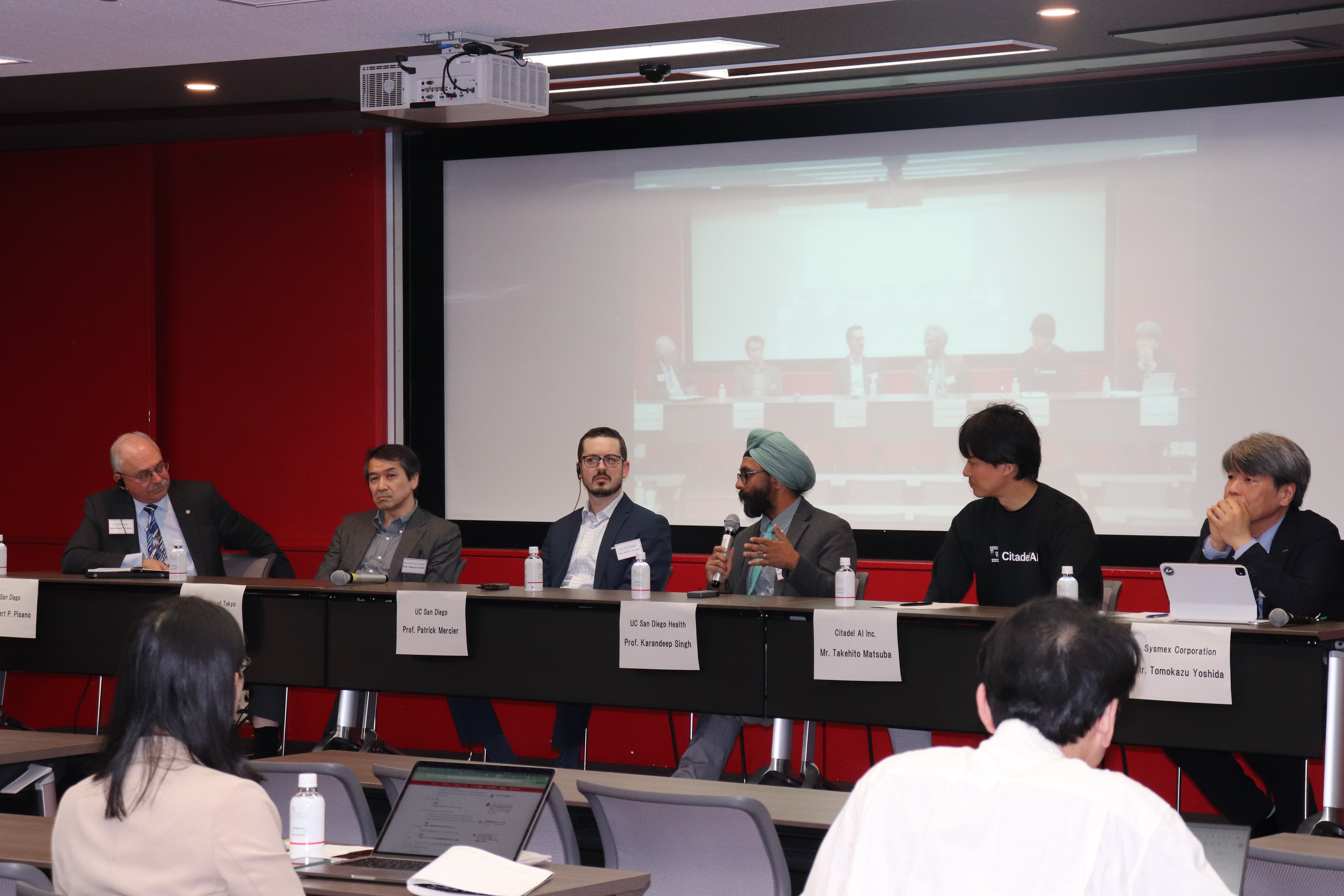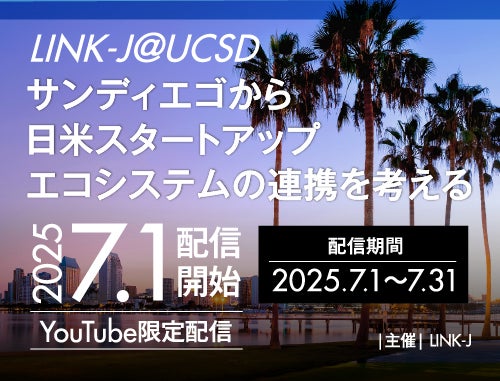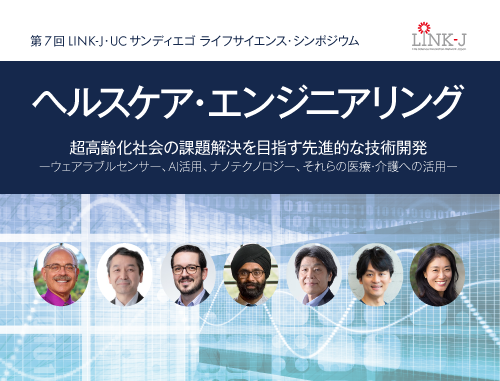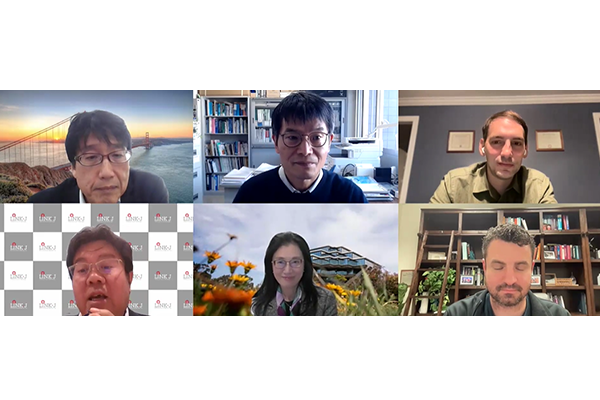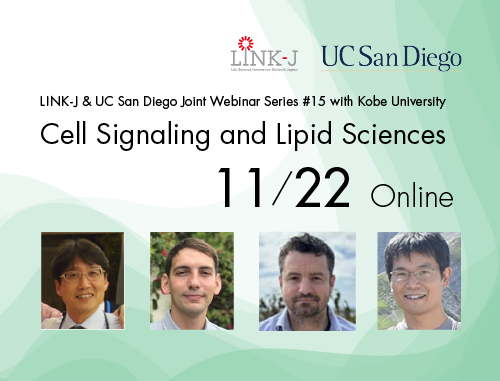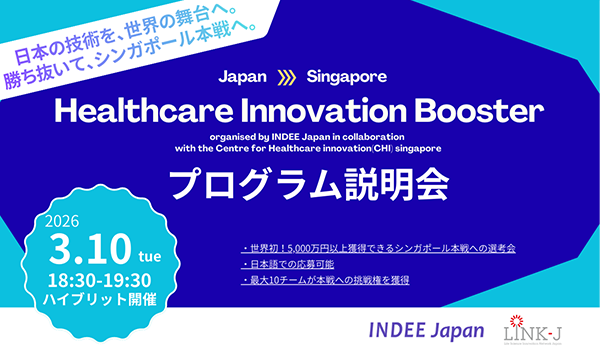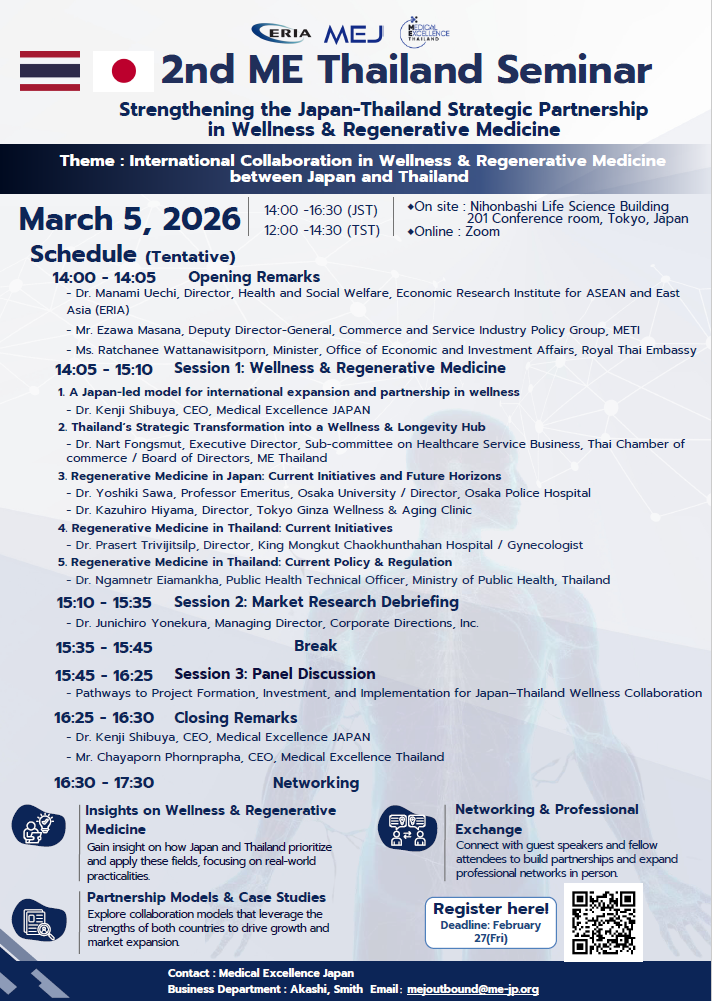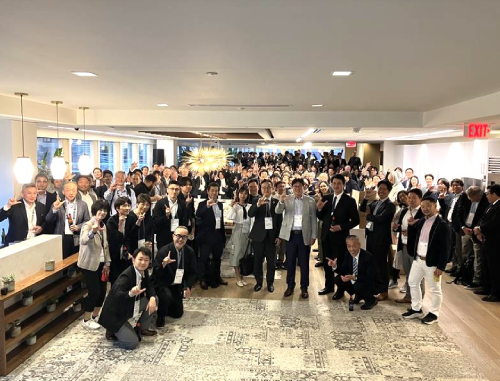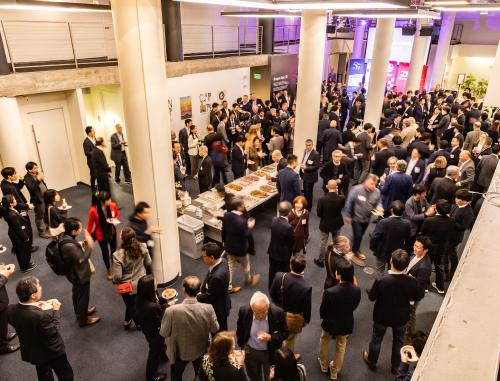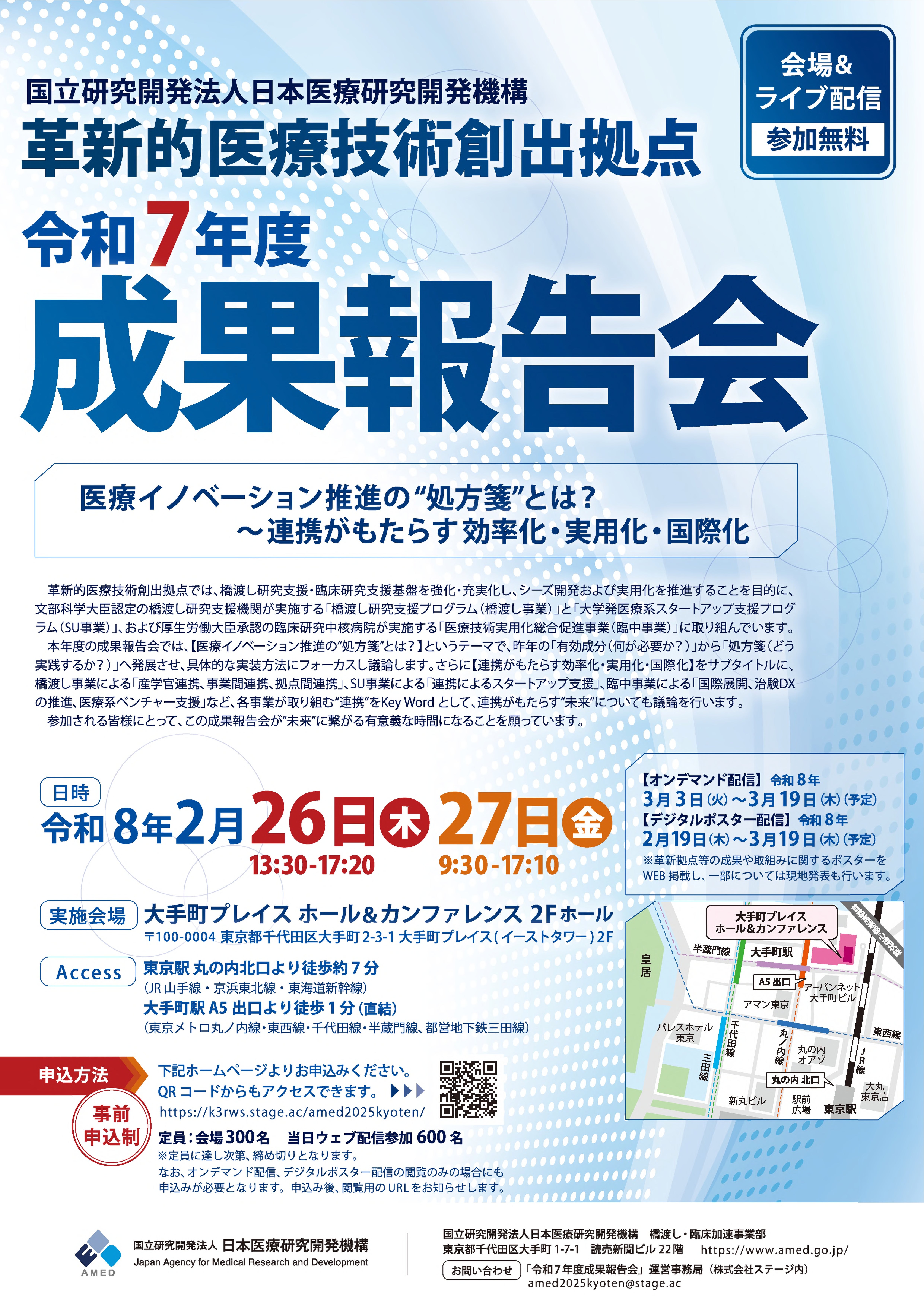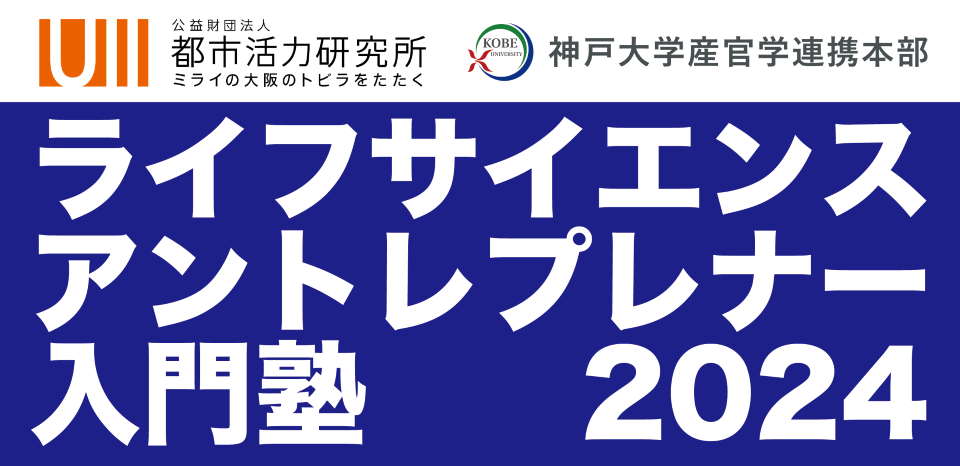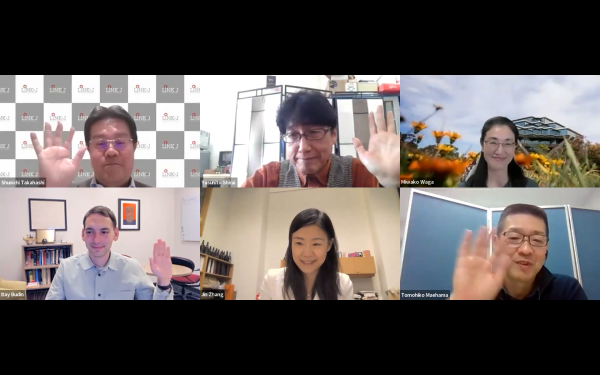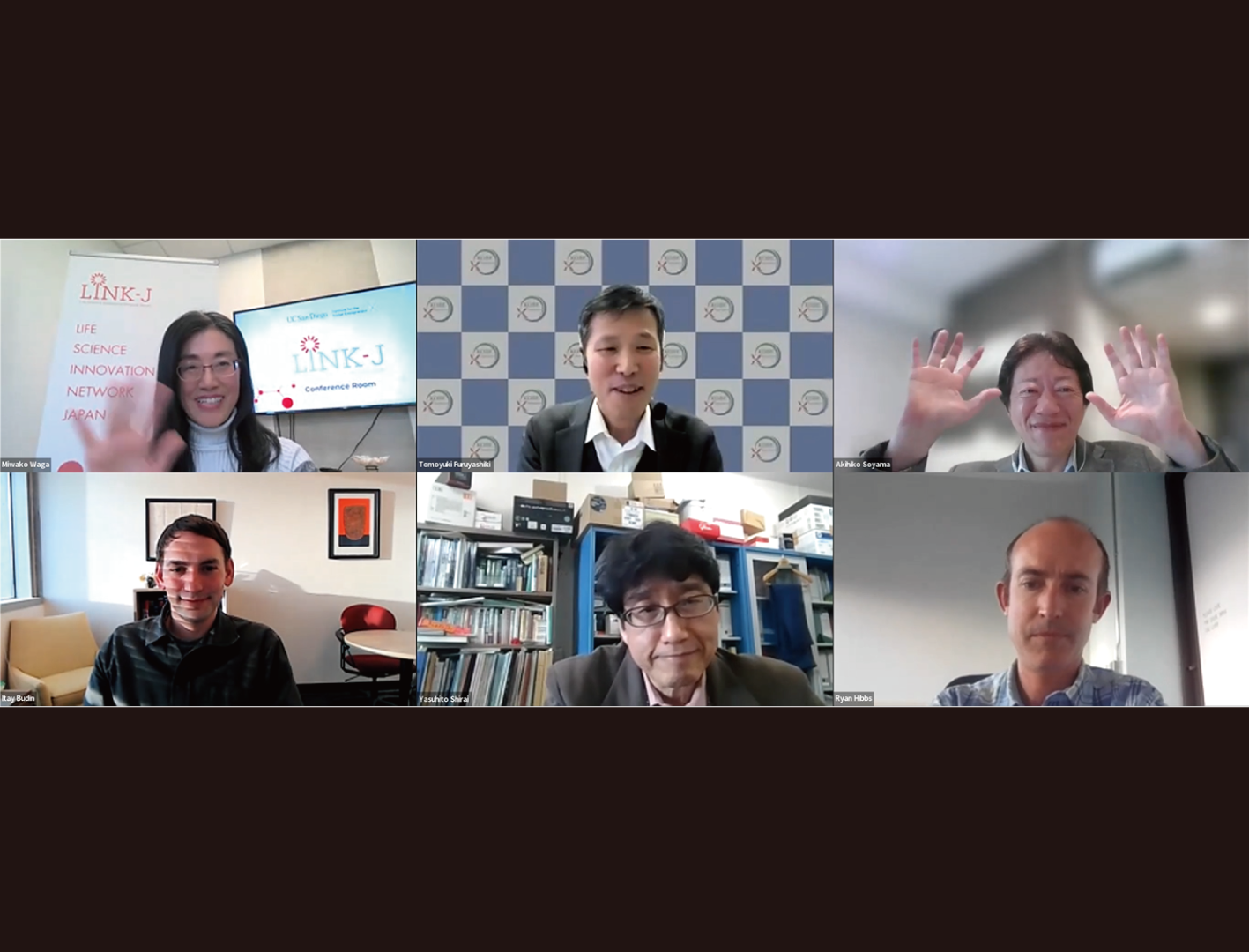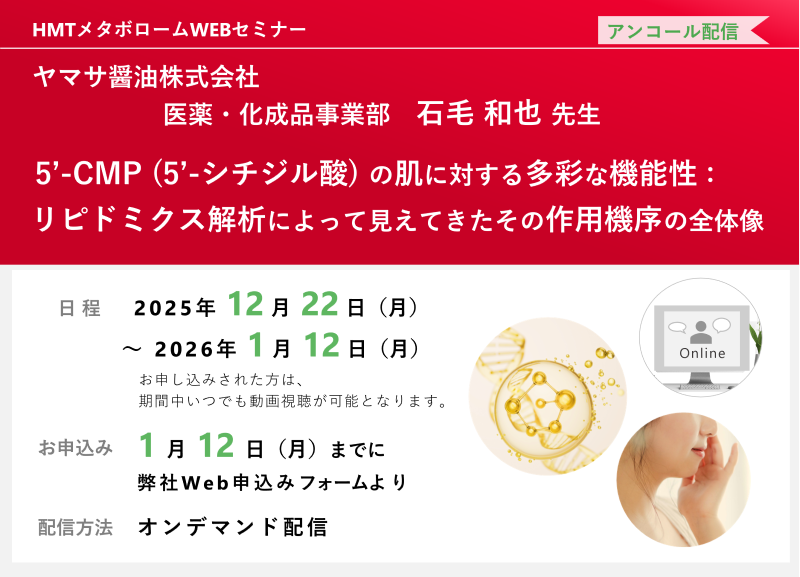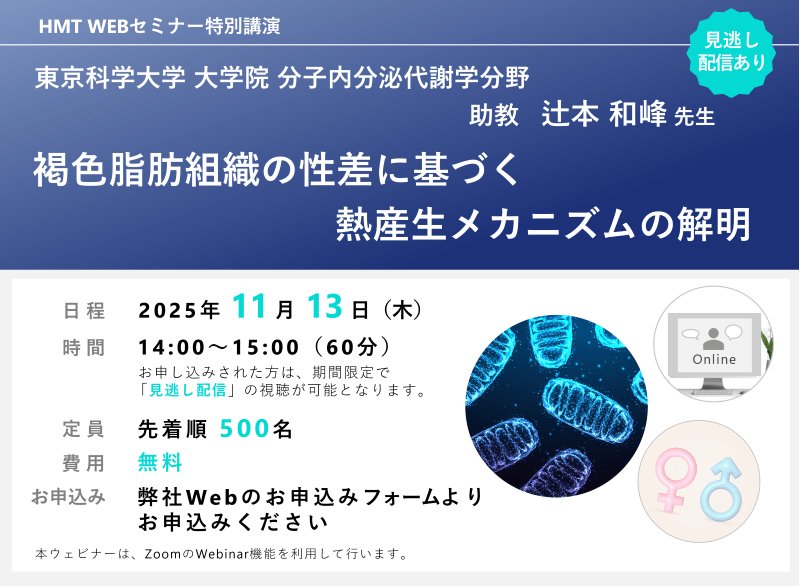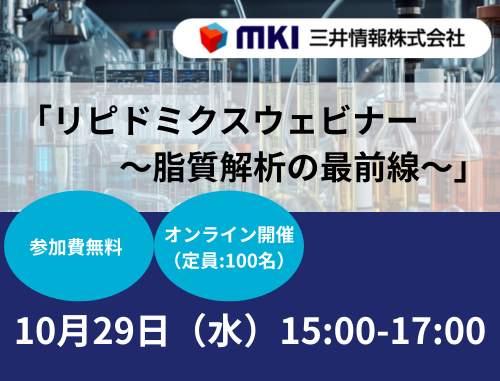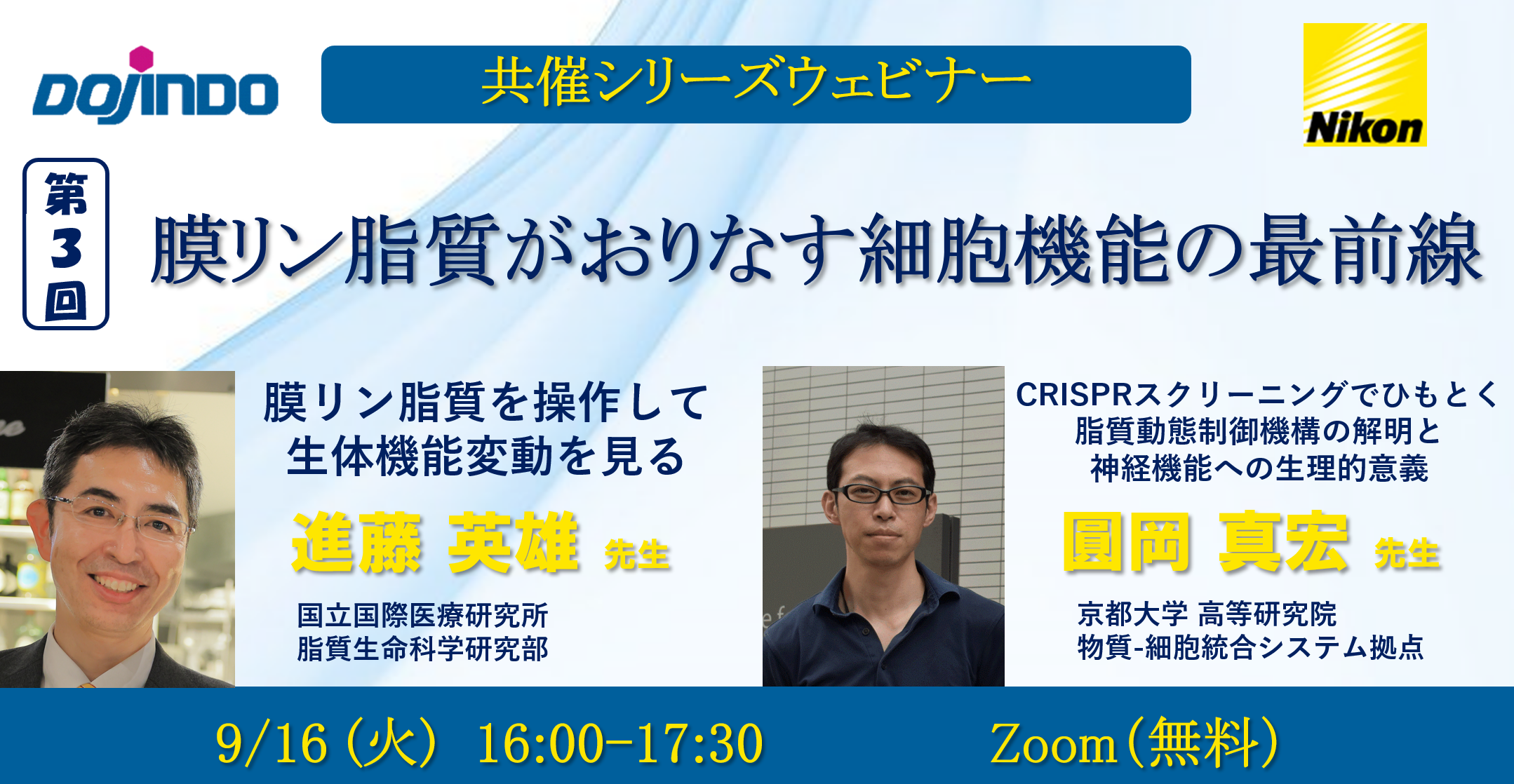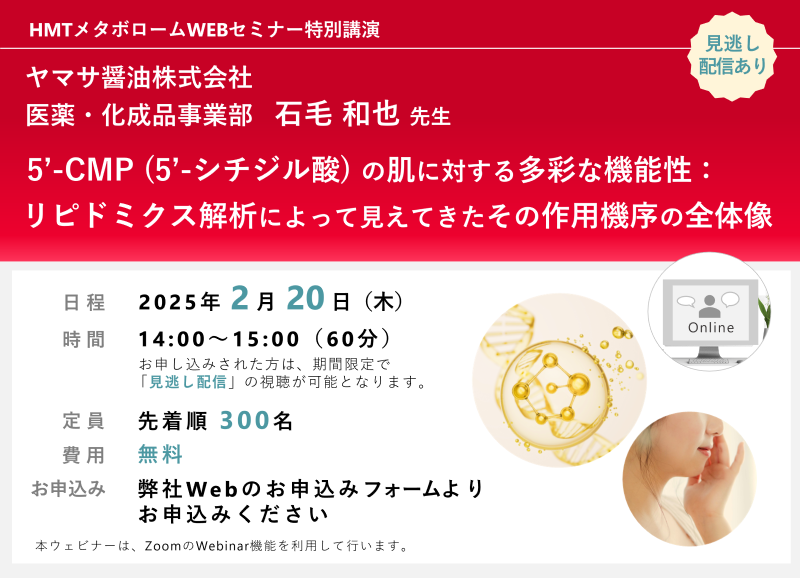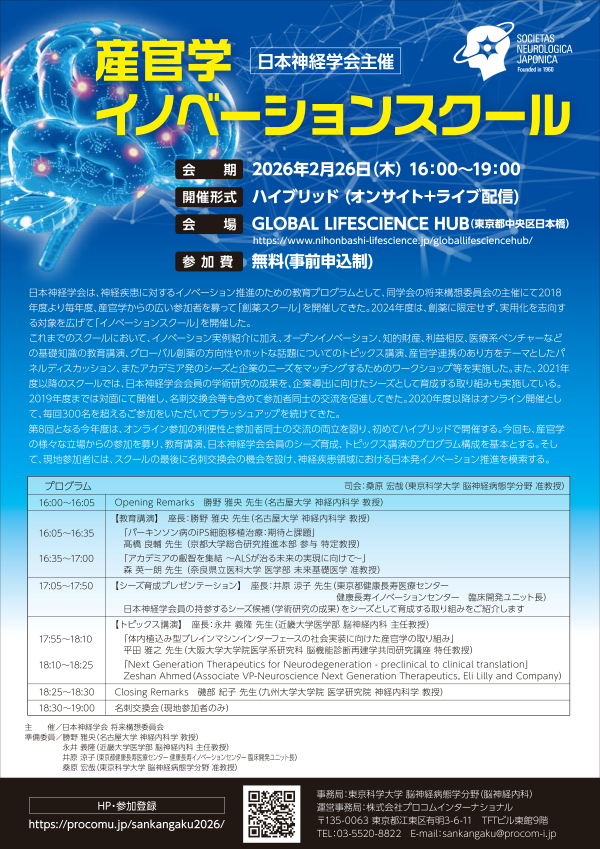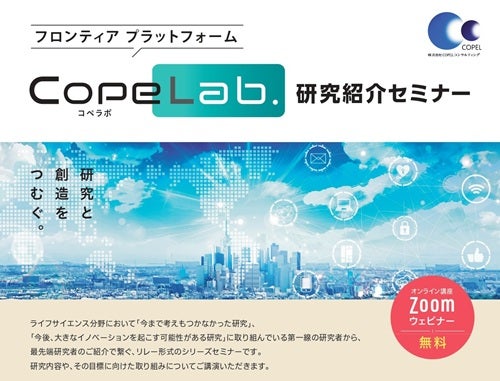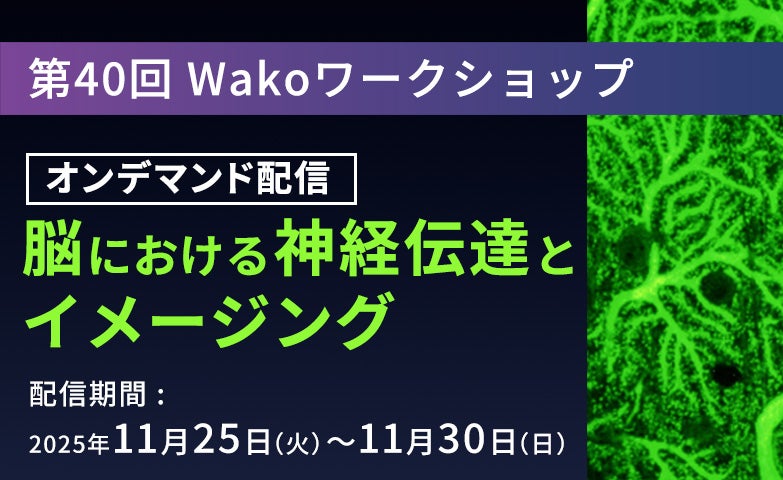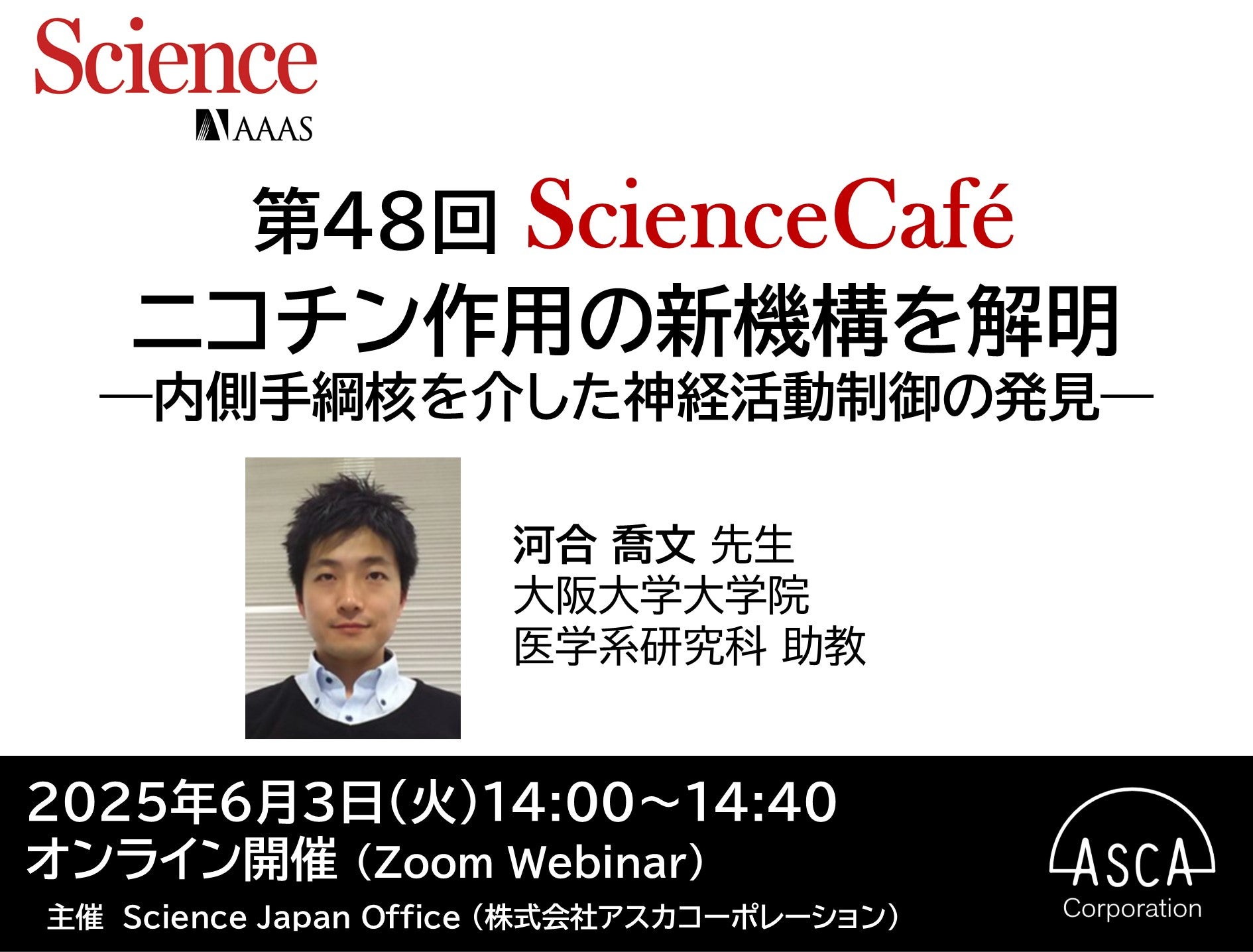LINK-J & UCサンディエゴ ジョイントウェビナーシリーズ 第13回 with 神戸大学
UCサンディエゴと神戸大学は何年にもわたり生命科学、計算機科学、構造工学の分野で共同研究を進めてきました。特に両校が強みを持つ生物学、生化学における脂質研究は、双方の研究者が重点的に協力してきた分野です。今回3回目となる「細胞内シグナル伝達と脂質研究」ジョイントウェビナーシリーズでは、UCサンディエゴのセルシグナリングセンターと神戸大学のバイオシグナル総合研究センター及びメディカルトランスフォーメーション研究センターの研究者が最新の研究成果をご紹介します。
細胞質膜の脂質組成やタンパク質との相互作用は、細胞の移動だけでなく、細胞分化やアポトーシスにも密接に関連しています。また、脂質やその代謝物は脳の構造や機能に重要であり、神経疾患にも関与しています。実際に、脳は脂肪組織についで高濃度の脂質を有しています。本セッションでは、両校の教授が様々な酵素、特に脂質のリン酸化及び脱リン酸化に着目した、癌などの疾病に関連した情報伝達系について論じます。
使用言語:英語
※同時通訳あり
※英語字幕利用可能(オン/オフは自由に選択できます)
※字幕は市販されているアプリを使用しており、LINK-JおよびUC San Diego、神戸大学は誤訳、訳文の欠落など、字幕に関する一切の責任は負えませんので、ご了解願います
字幕利用方法:クローズドキャプションの管理と表示
日時: 2023年11月29日(水)9:00-10:15 AM(JST)/ 11月29日(火)4:00-5:15 PM(PST)
オンライン(Zoomウェビナー)
(外部サイトが開きます)
プログラム
| Japan Time | Pacific Time | Agenda |
| 9:00-9:02 | 4:00-4:02 | Welcome - Shunichi Takahashi, LINK-J and Miwako Waga, UC San Diego |
| 9:02-9:03 | 4:02-4:03 | Brief Remarks - Dr. Yasuhito Shirai, Professor, Kobe University Graduate School of Agricultural Science |
| 9:03-9:05 | 4:03-4:05 | Brief Remarks and UCSD Speaker Introduction - Dr. Itay Budin, Assistant Professor of Chemistry & Biochemistry and Bioengineering, UC San Diego |
| 9:05-9:30 | 4:05-4:30 | Presentation - "Illuminating the Biochemical Activity Architecture of the Cell" Dr. Jin Zhang, Professor and vice Chair, Department of Pharmacology & Professor, Departments of Chemistry & Biochemistry and Bioengineering |
| 9:30-9:34 | 4:30-4:34 | Q&A - moderated by Dr. Budin |
| 9:34-9:35 | 4:34-4:35 | Speaker introduction - Dr. Shirai |
| 9:35-10:00 | 4:35-5:00 | Presentation - "Hippo-YAP Signaling Pathway in Squamous Cell Carcinoma Onset and Progression" Dr. Tomohiko Maehama, Associate Professor, Kobe University Graduate School of Medicine |
| 10:00-10:14 | 5:00-5:14 | Q&A and Discussion - moderated by Drs. Shirai & Budin |
| 10:14-10:15 | 5:14-5:15 | Closing Remarks - Shunichi Takahashi |
Presentation Abstracts
Dr. Zhang's talk
"Illuminating the Biochemical Activity Architecture of the Cell"
The complexity and specificity of cellular processes require spatial microcompartmentation and dynamic modulation of the underlying biochemical activities, such as dynamic phosphorylation and dephosphorylation catalyzed by specific protein kinases and phosphatases, respectively. We hypothesize that cellular biochemical activities are spatially organized into an “activity architecture” and reorganization and restructuring of this activity architecture lead to disease. In this talk, I will introduce a series of genetically encoded fluorescent biosensors that we have developed to monitor biochemical events in living cells, and then present a couple of studies where we combine quantitative fluorescence imaging with targeted perturbations as well as biochemical and functional assays to probe the subcellular regulation of cAMP/PKA and ERK signaling pathways.
Dr. Maehama's talk
"Hippo-YAP Signaling Pathway in Squamous Cell Carcinoma Onset and Progression"
The Hippo-YAP signaling pathway regulates organ size, tissue homeostasis, and tumorigenesis in mammals. The Hippo core complex which consists of MST and LATS kinases and their adaptor proteins, SAV1 and MOB1, blocks the translocation of YAP1/TAZ proteins to the nucleus, curtailing cell growth. Activation of YAP1/TAZ occurs in many human malignancies and promotes their initiation, progression and metastasis. To clarify the molecular mechanism of YAP-driven cancer development in vivo, we generated mice that were deficient for critical Hippo component MOB1 to increase intrinsic YAP activity.
The deletion of MOB1 in the tongue and cervix in mice resulted in the rapid and highly reproducible development of squamous cell carcinoma (SCC) in these tissues. Consistently, immunohistochemical analysis showed strong YAP activation in human cervical and tongue cancers from the pre-cancerous stage. Genetic alterations, such as TP53, PTEN, FAT1, frequently observed in tongue cancers all increased YAP activity in tongue cancer-derived cell lines, and the effect was additive. Risk factors for cervical cancer, such as cigarette smoke condensates and estrogen, also increased YAP activity in cervical epithelial cells. These observations suggest that genetic and environmental risk factors induce incremental activation of YAP. These cancer onsets may initiate when YAP activity eventually exceeds an oncogenic threshold, indicating Hippo-YAP signal as a major driver for for the onset of these SCCs.
This talk will focus on the molecular mechanism for SCCs with showing our recent progress in SCC mouse model studies. In addition, our recently developed potent YAP inhibitors will be discussed.
Biographies
Dr. Yasuhito Shirai, Professor, Graduate School of Agricultural Science, Kobe University
Yasuhito Shirai is a Professor and Vice Dean of the Graduate School of Agricultural Science at Kobe University. He also serves as the Director of Americas Division in the Institute for Promoting International Partnership.
Shirai earned his PhD in 1994 in the Graduate School of Agricultural Science, Kobe University. He became an Assistant Professor in the Graduate School of Science and Technology and then in the Biosignal Research Center (BSRC). While he was assistant professor at BSRC, he worked as a visiting scholar at the University California San Diego in 2000-2001. He was promoted to an Associate Professor in the BSRC and obtained a second PhD degree from the School of Medicine of Kobe University in 2005. Finally, he was promoted to a Professor in the Laboratory of Chemistry and Utilization of Animal Production Resources in the Department of Agrobioscience, Graduate School of Agricultural Science. He conducts signal transduction research focusing PKC and DGK to develop functional food, medical food, and medicine.
Dr. Itay Budin, Assistant Professor of Chemistry and Biochemistry, UC San Diego
Dr. Itay Budin is an Assistant Professor in the Departments of Chemistry & Biochemistry and Bioengineering at UC San Diego. Trained as a biophysicist, his lab investigates the interplay between lipid chemistry and cell membrane function. Dr. Budin received his PhD from Harvard University and carried out postdoctoral studies as a Miller Fellow at UC Berkeley. He is the recipient of the Walter Shaw Young Investigator Award in lipid biology from the American Society for Biochemistry and Molecular Biology and early career awards from the National Science Foundation and US Department of Energy.
Dr. Jin Zhang, Professor and vice Chair, Department of Pharmacology & Professor, Departments of Chemistry & Biochemistry and Bioengineering
Dr. Jin Zhang received her PhD in Chemistry from University of Chicago in 2000. After completing her postdoctoral work in the laboratory of Roger Tsien at UC San Diego, she joined the faculty of Johns Hopkins University School of Medicine in 2003. She was promoted to Professor of Pharmacology in 2013. In 2015 she moved back to UC San Diego and is currently Professor and Vice Chair in Department of Pharmacology. Research in her lab focuses on developing enabling technologies to probe the active molecules in their native environment and characterizing how these active molecules change in diseases including cancer. Dr. Zhang is a recipient of the Biophysical Society Margaret Oakley Dayhoff Award (2009), NIH Director’s Pioneer Award (2009), John J. Abel Award in Pharmacology (2012), Pfizer Award in Enzyme Chemistry (2012), NCI Outstanding Investigator Award (2015 and 2022), Robert R. Ruffolo Career Achievement Award in Pharmacology (2022), Protein Society Christian B. Anfinsen Award (2022) and Biophysical Society Carolyn Cohen Innovation Award from (2023). She was elected as a Fellow of the American Association for the Advancement of Science in 2014, a Fellow of the American Institute for Medical and Biological Engineering in 2019 and a Fellow of American Society for Pharmacology and Experimental Therapeutics in 2021. Dr. Zhang also received UC San Diego Chancellor's Award for Excellence in Postdoctoral Scholar Mentoring in 2019 and UC San Diego Jacobs School of Engineering Outstanding Graduate Student Mentoring Award in 2022.
Dr. Tomohiko Maehama, Associate Professor, Kobe University Graduate School of Medicine
Tomohiko Maehama is Associate Professor at the Graduate School of Medicine, Kobe University, Japan. He graduated from Tokyo Institute of Technology, Japan in 1990 and obtained his PhD degree in 1995 at the Graduate School of Bioscience there in the lab of Professor Toshiaki Katada. After a JSPS Research Fellow there and a Research Fellow at University of Michigan Medical School in the lab of Professor Jack E. Dixon, he became a Research Investigator at Tokyo Metropolitan Institute for Medical Science in 2000 and was promoted as a Laboratory Chief at National Institute of Infectious Diseases in 2006. Then he has been in the current position in Kobe University since 2016. His research interests are to elucidate molecular mechanisms of cancer development, particularly focusing on functions of tumor suppressors.
参加費
無料(要事前登録)
